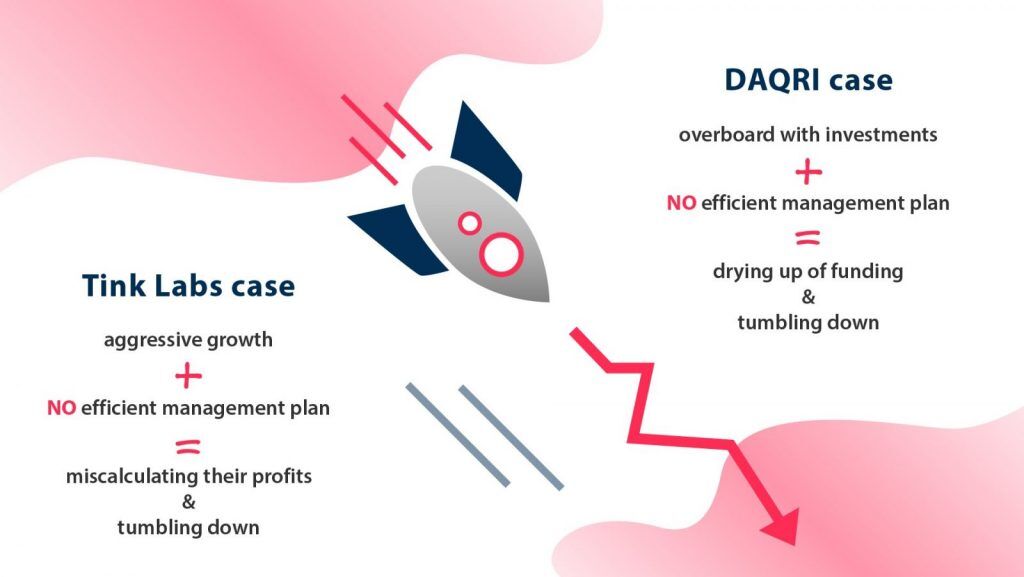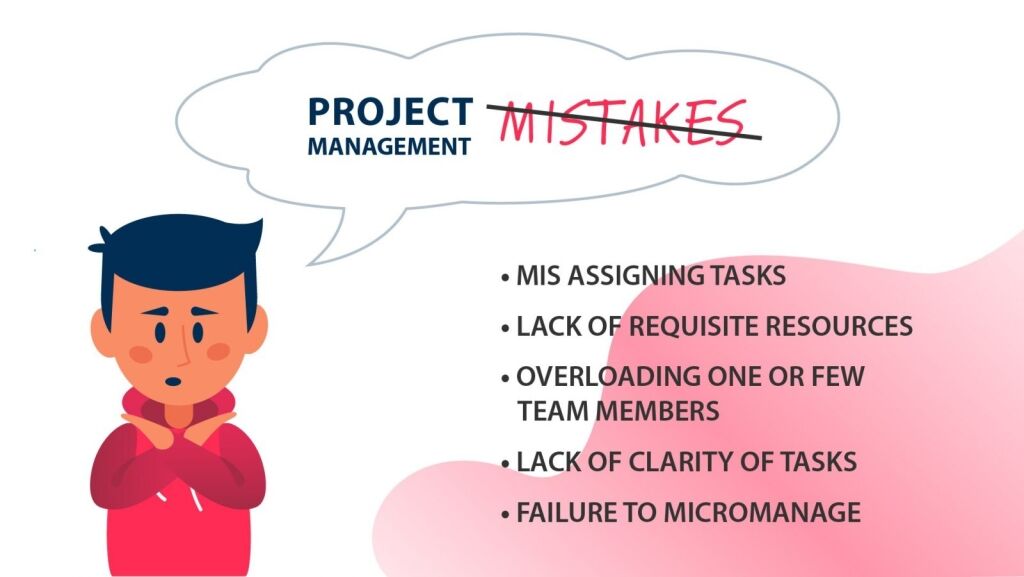A Beginner’s Guide In Startup Project Management
- Updated: Aug 27, 2024
- 14 min
Startups are seeds of imagination and passion that germinate as side hustles or a bang-on investment of time and money.
Besides, like a sapling needs sunlight, water, and nutrients from the soil, a startup also requires a certain set of resources to grow. The key lies in providing the optimal resources and then using them with brilliance.
And an essential way to succeed is to have impeccable startup project management in place.
Before dwelling on the concept of startup project management, let’s talk about one dream goal that every entrepreneur has. To become a unicorn startup.
No, it’s not the one-horned horse from your childhood fairytales. Unicorns are private startups that break the ceiling of the billion-dollar revenue mark.
Management, the laxer the word sounds, the more is its potential to give anxiety to any manager or CEO. Especially when it comes to startups, the quintessential management process becomes vital.
Yet, the internet is full of tons of claims of the best project management software for startups. All you need is one solid framework for directing your team and resources to raise your brand’s success.
Before we dive into the topic, explore this list of the best project management software that offers top tools for productivity and collaboration.
So, do you need to look for project management software for startups or get one built for yourself? Here’s a complete beginner guide to give the right wind to your sail and achieve the dream of becoming a unicorn. 
Why Startup Needs Project Management?
Project management tools help you organize, plan, track and analyze the data, process, team and other aspects at various stages of a project. Also, project management makes a good fit for idea validation. These come in handy to deal with deadlines, foster collaborations and even cut on costs.
Communication and organization are two concepts that play an active role in any firm. So keeping track of the two, or keeping the two on track is essential. And that’s exactly where a dedicated task management solution for overseeing projects can help. Besides, a startup project management tool will also allow for further investment opportunities. A great addition to your investment opportunities can solve a startup investment proposal template that might be helpful for your team to create a plan and keep all on track.
As per a recent study by KPMG, only 19 percent of organizations are able to deliver (at least most of the time).
- As per the Harvard Business Review, most projects go over budget by 27 percent of their planned cost.
- PMI states that only 28 percent of companies adopt project performance techniques.
- 87 percent of high-performing companies use project management software, as per Wrike Statistics.
If the above facts are not eye-openers, what must be? These and many other studies show that only a third of businesses in the world opt for project management plans. Also, a majority of this very chunk goes over budget and deadlines.
At the same time, the few that take the efficient planning route are able to reap the benefits of project management.
Startup project management becomes even more crucial for ventures having a lack of resources, time and expertise. The better the management, the better are your chances of achieving the end results.
Implementing frameworks like RACI improves resource use and time management, clarifying roles for tasks and fostering effective decision-making and team collaboration.
To have a better look at how these impact, we’ll share some examples of how some startups struggled to realize the advantages of project management while building an MVP. Learn more about what is MVP in business.
Good project management can help keep a team motivated, on track and distraction free. I think it’s particularly important in startups with smaller teams where each team member has more responsibilities and is juggling multiple projects.
Like many startups we are a remote company with team members working in different locations and in different time zones. We use project management and workflow tools to communicate progress on various tasks and projects.
This allows one person to pick up where someone else left off with minimal friction. This also gives us an overview of where we are and how close we are to important goals and milestones, ensuring we are all working together and towards the bigger company goals.
Matt Benn, the founder at Soundplate
Contact our experts for insights and solutions tailored to your specific project and business goals.
Two Startup Examples Which Struggled Due To Project Management Issues
The world sees the birth of millions of startups in a year. But following the law of the jungle, only the fittest survive. And those who fail, leave nothing but lessons to learn for others.
Now though there could be many reasons for the failure of a startup, a lack of management is a prominent one. Here are a couple of startup examples that struggled due to project management issues. Have a look.
Tink Labs case
Tink Labs, a Hong Kong startup, provided free-to-use smartphones to hotel rooms.
It managed to sell hundreds and thousands of units across several countries. The clients could use these devices for free and avoid expensive roaming charges. But, they pursued such aggressive growth that they failed to use an efficient plan.
In the end, they ended up miscalculating their profits and tumbled down. The lack of an effective revenue model despite great funding led to mass firings and huge bills.
The problem was that Tink Labs failed to test the efficiency of its revenue model before going head over heels with expansion. Besides, they did not have any backups to retrieve bills. Another backdrop was that they gave the staff aggressive targets.
Unfortunately, with the condition that failure to meet them would result in termination. The spirit of teamwork is usually hard to find in such scenarios.
DAQRI case
Another example is the startup DAQRI, a Los Angeles-based augmented reality company.
It developed wearable products like smart glasses and other communication and entertainment devices. But when it faced the heat of mismanagement, it crumbled like a house of cards. Apart from the uncanny peer competition in the market, it failed to manage its finances.
The company went on investing hundreds and thousands. But in the absence of a strong plan to tap the market and generate revenue in time. Soon the funding dried up so did the scope of the company.
A possible management plan that could have saved DAQRI could have been to have funding backup and toning down their acquisitions. As mentioned in TechCrunch, the team went overboard with investments. That too at a time when their investors were stepping back.
In fact, they also had to step back from a major project to realize the technical limitations at a later stage. Now, this must have been identified earlier.
Apart from these two, there are many other brands that have made the same or similar mistakes. Yet, while bigger brands are able to sustain such failures, startups have weak immunity and find it hard to recover.
Augmented reality is reshaping industries. Check out the latest AR statistics to see its impact. 
What Are The Most Essential Features Of Project Management Software For Startups?
If we don’t add the right amount of salt, sugar and other spices to a recipe, it won’t taste good. Though not all have the same taste buds, certain foods melt well in any mouth.
Likewise, a few basic features apply to all the startup project management plans.
- Effective Teamwork:
Nothing can beat good teamwork!
From sports teams to movies like Oceans 11, a team knows how to make the most of every opportunity and skill set. So, a plan that is devoid of enough room for the team to collaborate and communicate is a half-cooked dish.
For instance, what one member of the team might be struggling with could be a piece of cake for another. At times it is all about perspectives. And teammates can give effective ideas without even having adequate knowledge in a particular field.
Each member must have access to the knowledge about the tasks other team members are engaged in. This is where using free task software can prove to be incredibly useful. It’s especially helpful when the duplicity of tasks is a possibility.
Before making a hiring decision, explore the cost of hiring a software developer and what factors to consider.
- Planning/Scheduling:
Planning is synonymous with management. Teamwork involves division of tasks. The crux lies in assigning them in a way that it is easy to follow and keep track of.
An effective startup company, project management software, must be able to draw all the plans in one placewhether you are using one for marketing project management or a financial project.
That too, without making them look like a countryside vegetable market.
A task time tracker comes in handy in this situation. With tools like Clockify, you can manage and coordinate multiple projects, divide tasks accordingly among team members, and track the working hours of each team member as well as the number of hours spent on each project.
On the long run, project management is improved, as is progress communication.
- Documentation:
Documentation is also essential for keeping track of the many files and data sets of a project.
There needs to be a common location where you could keep all the files. Access to these must be granted or rather say limited to those who need it. Also, if a file has many revisions, the edits need to have proper versioning in place.
For example, you’ll have to determine if you’ll join separate PDFs into one single file or decide to keep each file separate when editing.
- Analytics and Evaluation:
Critical self-assessment is crucial. This could mean the individuals themselves or the team as a whole. For evaluation, it must have inbuilt analytics for reports on the team’s performance. Or to figure out possible loops that may pull back the project’s speed. 
Dive into our case studies to see how businesses like yours have achieved milestones with our project management solutions.
Startup Project Plan – Basics and Tips
The easier it sounds, the more are the possibilities to commit errors in startup project planning. There are certain nuances that you and your team need to be aware of before taking the leap. Here are a few!
The Basic Process of Goal Setting For Startups
Deciding to wake up early tomorrow morning and go on a morning walk is not goal-setting. It’s a more explicit process. It begins with identifying the objectives, skills, and resources you’ll need.
Goal setting is an imperative part of the process of startup project management.
Though the process of goal setting is not one size fits all, there are certain basics that apply to all. These are:
- Brainstorming:
How many of you are comfortable driving long distances or unfamiliar routes without a GPS or map? Only a few! We are not, to be honest.
The GPS system guides us through roads and risks which are unknown to us. Besides, it warns us of the impending traffic or dead ends, which might slow down our speed or halt our journey. But the GPS system is dependent on real-time input from the satellites.
Likewise, with projects, the GPS is your plan, that works on the input of ideas. For this, brainstorming is an excellent approach. It will enhance your clarity about goals, methods, and timelines, as collateral.
It also gives you a plethora of right answers and ideas to chart your strategies.
Most entrepreneurs keep their feet in many boats. From finance to marketing, clients to delivery, they are ready to take care of everything. If you are in the same bandwagon, sit down (alone or with your team) and club all the ideas and possibilities that pour in.
There are many brainstorming techniques, you can follow for your startup.
Yet, a note of caution is that you must be precise in your approach. The brainstorming must revolve around one issue at a time. While you could have many goals, they must all branch down to one single root cause – to succeed.
Moreover, when a project has a clear sense of purpose, it is more likely to succeed. A side perk – you and your team’s critical thinking and problem-solving skills will become more clear. Better collaborativeness is another advantage.
- Shortlist SMART Goals:
Not everything that comes in a human brain is worth working on. While you may be wise enough to know what is actionable, there ought to be a parameter to verify your decisions.
One amazing way to check if a particular idea is worthy of being a part of your goals is to check the following boxes.
- SMART
- Securable
- Manifestable
- Absolute
- Rational
- Timeline based
- Conceive a Plan with Timelines:
The next step is to filter the results of the brainstorming process and arrange them in a precise manner.
While forming a plan, keep room for changes. Like there could be many routes to reach a destination, arriving at set goals is not much different.
Besides, no project goal can be considered complete without an end in mind. Being flexible will allow you to fuse better resources as and when they are available.
Set up timelines with short term goals in place, and let the team strive to achieve them. It will also aid lead generation goal setting, the budget setting for startups, etc.
Here are a few things that you must include in your planning part.
- Use the time tracking tool
- Set clear and concise goals.
- Break the project into many deliverables.
- Highlight all the important deadlines.
- Set progress reporting at regular intervals.
- Layout the possible risks (Consider learning more about risk management as it might be a difficult area to navigate).
- Brace yourself for dead ends.
The best examples for goal setting for startups where you can apply the above method are:
- Increasing project efficiency,
- Profit margin,
- Capture a bigger market, etc.

Startup Project Management Tips
Good plans result in great outcomes.
But for this, we need to get a bit into the psychology of people. You might agree that you are able to give your best when you are in a good mood. Some may say that pressure makes them give their best. Wonder how these can impact project management?
May I ask, can you get all the tasks accomplished on your own, and without the involvement of another human?
One must not forget that skills and assets have little to no value if we lack the right mindset to achieve them. To make the most of your team, learn to be more frank and trustable. Do not make them work with their job, promotion, salary, or pay hike at gunpoint.
Besides, applying the same method to all the projects is not desirable. If a project has different demands and requirements, the plan also has to be distinct. Also, all the calculations should be made about what can save more funds or deliver the project earlier.
An effective layout for scaling must also be up and ready. That’s why before doing activities, you need to find out how much does it cost to build an MVP.
Here are a few more tips that will aid your planning and management tasks.
- Learn to trust, and assign tasks to others.
- Choose the correct method.
- Identify and plan in advance for possible errors.
- Always have a backup in case something goes wrong.
- Mix and match different management methods to create a unique one for each project.
So any plans you make, have to take these tips to manage a project into account. Yet, we can also learn from the mistakes startups make with their project management. See more in our guide about how to create a successful app.
Great project management begins with great planning. If the startup project centers around a new piece of software, then great planning of progect management for startups means:
- Clarify the Vision
- Create visuals of your intended end results
- Blueprint the Plan
- For most projects visuals are not enough. You need to map the route from zero to realization of the end result. Let the software architect creates a set of technical instructions. The visual of your desired end result is like a rough idea. An architect provides blueprints of how the idea should be build in details.
- Walk the MVP Walk, Don’t Just Talk the MVP Talk. Many startup founders have read about an MVP and give lip service to building an MVP… but then still fall victim to feature creep. They don’t define their MVP narrowly enough and test their core concepts incrementally. Learn how to transform your MVP into a fully-fledged product with our tips on from MVP to full-scale product.
Gabriel Richards, CEO at Endertech
Project Management Mistakes
Project management for entrepreneurs is not a foolproof game. Project management for entrepreneurs is not a foolproof game. Great losses are great lessons. So here are a few common mistakes in project management that other startups made and you must avoid.
- Mis Assigning tasks:
A wrong judgment of people and their skills can cost a lot. It is an important part of project planning to assign tasks to people as per their capabilities. An amateur person in the team must not be assigned an expert level task.
This knowledge can be better acquired over time. So it is preferable to give the project management tasks to a qualified team member.
- Lack of requisite resources:
While it is always good to make the most of available resources, investing in more is not immaturity. And this ends up being one of the most common project management mistakes.
If you need extra resources, it is better to try and manage them in your plan. Instead of delivering below expectations or after deadlines.
For instance, if you need a professional designer in your team for quality graphics, you must hire one. Trying to make do with amateur applications might deliver nothing more than doodles. And yes, sometimes the management of the design team requires additional expertise too.
- Overloading one or few team members:
Teamwork is one of the foundational pillars of efficient startup project management. Over assigning tasks to a few teammates will pull down their enthusiasm. Besides, the one with fewer tasks may feel neglected and not given the opportunity to do their best. Optimal use of all resources is advisable, with humans being no exception.
- Lack of clarity of tasks:
Many mistakes in project management stem from miscommunication alone.
Miscommunication about tasks can lead to delay, errors and a lot more things. Furnishing incomplete knowledge while allotting tasks, may lead to confusion. Members may either work in the wrong direction. Or they may end up hunting for information that others already have.
In most meetings members tend to be quiet when their managers speak. The team needs to be more interactive, and discuss each issue in depth. Every meeting must conclude with a clarity of all that came up.
- Failure to Micromanage:
Micromanagement means setting checks and balances on a small bunch of tasks. The team could create a schedule with a timeline template and work on one task at a time. At the completion of every task, one must check and assess it. Any rework (if required) must follow immediately after.
This way, no member will have their feet in two boats at the same time. And neither must there be many uncompleted tasks.
Turning your app idea into reality? Learn how to start an app step by step. 
This beginner’s guide threw enough light on why a startup project management makes sense.
Experienced or not, proper management is no less than a solution for the roadblocks that are yet to occur. If you know how to complete a task, what problems might occur and how to deal with them, you are halfway through.
And there will hardly be any mistakes in project planning. Besides having won half the battle.
Knowledge is key, anyway!
Ready to test your startup idea? Learn everything about how to launch an MVP successfully.







